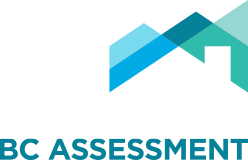How is market value determined?
When establishing the market value for a particular property, BC Assessment considers each property's unique characteristics. These are the same characteristics that a home purchaser would consider, including size, layout, shape, age, finish, quality, number of carports, garages, sundecks and condition of buildings. Services in the area, location, views and neighbourhood may also influence a property's market value. Also taken into account are recent sales of properties with similar characteristics. In the case of vacant land, newly constructed housing and substantially renovated housing, the sale price includes net Goods and Services tax.
Appraisers may enter a home to conduct property inspections, ensuring that the description and condition of a property is accurately reflected on the Property Assessment Notice. BC Assessment appraisers analyze all real estate sales in their area and develop common units of comparison and corresponding values. They review similarities and differences between properties to arrive at a uniform assessed value for a particular property.
Why are assessments based on market value?
Market value assessment is widely considered to be the fairest system for distributing the property tax burden.
In any tax area, properties of equal value contribute the same tax, while higher-value properties contribute more than those with lower values. Both assessors and taxpayers can readily check assessments by comparing recent sales and assessments of similar properties in the neighbourhood.
Why is there a difference between my property’s value on the assessment notice, the bank mortgage appraisal, or a real estate assessment?
The real estate market is the single biggest influence on market values. Market forces vary from year to year and from property to property. The market value on an assessment notice may differ from that shown on a bank mortgage appraisal or a real estate appraisal because BC Assessment’s appraisal reflects the value as of July 1 of the previous year, while a private appraisal can be done at any time.
When reviewing the annual property assessment notice, property owners should check that it reasonably estimates what the property would have sold for on July 1 of the preceding year, and that it relates to the value of other properties in the neighbourhood.
Do taxes increase as a result of inspections?
Not necessarily. A property inspection may reveal previously unrecorded improvements or evidence of physical deterioration. This could lead to a change in the value of the property assessment.
Property taxes increase for three reasons:
- the tax authority raises the property tax rate to raise more revenue;
- Improvements increase the property’s value; or
- Improvements raise the value of a property in relation to most other properties in the jurisdiction.
Changes in classification or exemption status can also affect the value of property and subsequent taxes. For more information on tax relief and deferments, contact your local municipal office.
Updated 01/2019
Disclaimer: Where information presented is different from legislation, legislation shall prevail.

